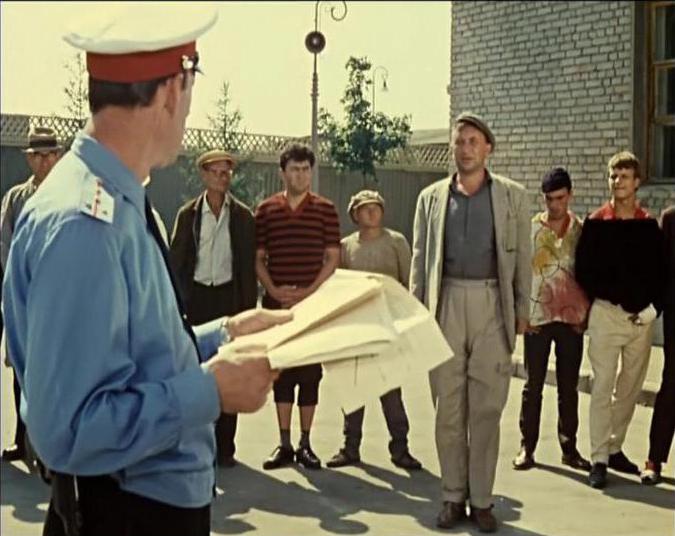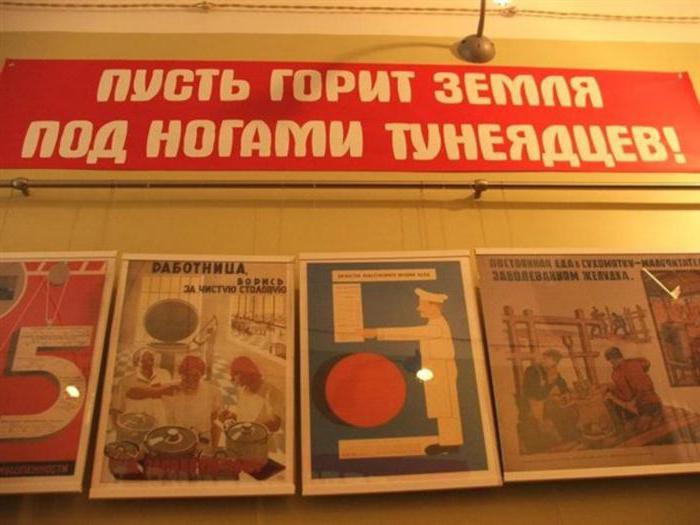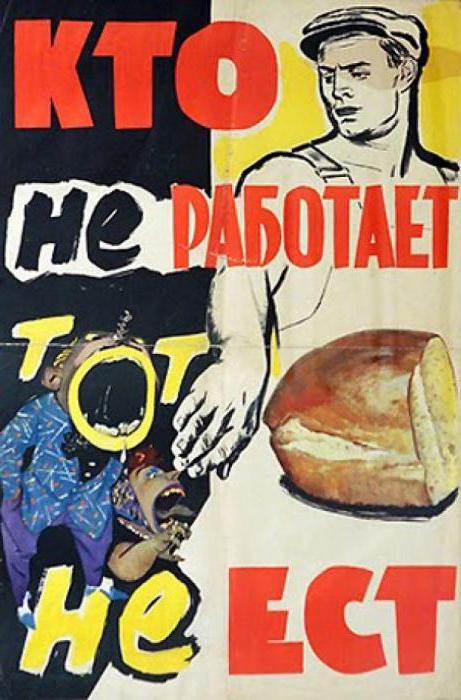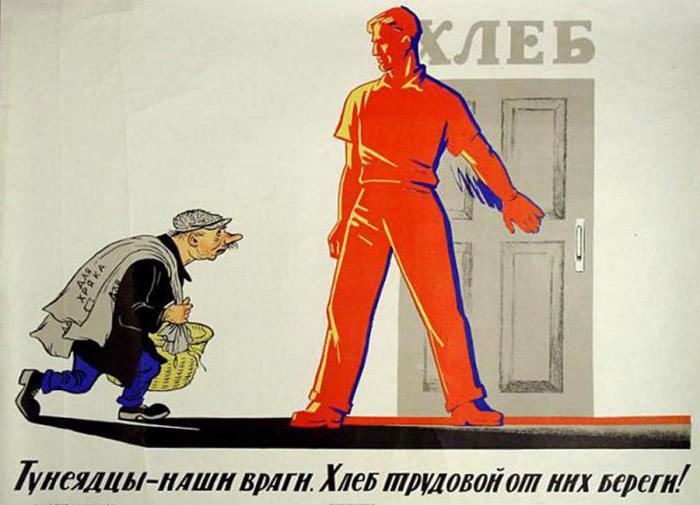Probably, each of us in the cinema, literature or life has repeatedly heard about parasitism. What is it and who falls under this definition? In general, parasites are people who lead a parasitic lifestyle. In the Soviet Union it was possible to receive punishment for this kind of existence.

Definition
The word "parasite" came from an obsolete dialect, which meant "free" or "free", as well as the verb "is". Therefore, parasitism is the essence of parasitism. Also, "parasite" (the meaning of the word we examined), has a synonym - social parasitism. This term refers to the existence of a person or group of people at the expense of others. The parasitism law appeared in the USSR in 1961 and lasted until 1991. Its essence was that every adult citizen living on unearned means and evading socially useful work was held accountable. Responsibility removed on December 5, 1991. Today this term is not applied in the legislation of the Russian Federation.

Parasitism in the Russian Empire
"Parasites" is a word that began to be used in some documents in the Russian Empire. However, no punishment was provided for such a lifestyle. Although the law on parasitism was not adopted, but in certain timesheets there were references to parasites. In those days, loafers existed mainly at the expense of relatives, and only public disapproval followed. In the USSR parasites are individuals who lead a parasitic lifestyle at the expense of society as a whole, and not of individual citizens.
The fight against parasitism
After the Bolsheviks came to power, significant transformations began. They consisted in the fact that wealth was taken away from the rich population, which was used to accelerate the building of socialism. Then the first familiar meanings of who the parasites were began to appear. These were citizens who are far from the conscious proletariat. They, according to Lenin, should have been re-educated.
In 1918, the Constitution of the RSFSR was adopted. The main thing that went into it was the rights of the working and exploited people. Citizens who lived on money earned by unearned labor and used wage labor were deprived of political privileges.
In 1936, in accordance with the twelfth article, labor in the Soviet Union was considered a duty and a matter of honor for the whole people who are able to work. The principle of the saying "who does not work does not eat" began to be used.

Poverty alleviation
In 1951, a decree appeared, in accordance with which the struggle against poverty and parasitic elements intensified. However, at first it did not give a special result. Citizens were judged on this article reluctantly. For two years, only one percent of the total number of this number of citizens was punished for begging.
Intensification of the struggle
On May 4, 1961, a decree was adopted to strengthen the fight against persons leading a parasitic lifestyle. According to this decree, people who do not want to work honestly and avoid social work, as well as who profit by prohibited means, are required to be evicted to a certain area. The period of resettlement ranged from two to five years. This happened confiscation of property which was obtained in an unearned way. Subsequently, the convicted person should have been involved in labor at the place of resettlement. Sentenced were citizens who did not heed the calls to embark on the path of honest labor.

We considered who is considered a parasite, now we will go directly to the one who fell under the action of the decree. Three years later, in accordance with the law, thirty-seven thousand people were exiled. At the same time, a process engineer fell under the law, who left the workplace and made a profit from breeding rabbits. A fireman was also exiled, working on his own land and making profit from the sale of grown vegetables and fruits.
There were cases when this decree was used to prosecute criminals for political reasons. A striking example is Joseph Brodsky.
In the Soviet Union, citizens convicted under this law were called the abbreviation BORZ. It stands for "without a certain occupation."
Each trial began with the fact that the courts required, first, to scrupulously check the period of non-participation of the person in labor activity and the reasons.
They fought with parasitism until 1991. This was followed by the adoption of the Law on Employment. In accordance with it, the criminal punishment for parasitism was abolished, and unemployment was recognized. Subsequently, the term "parasitism" was not used in the laws of the CIS countries.

Crime
According to many experts, parasitism is an excellent condition for the appearance of persons involved in criminal activity. After all, it is people who do not have a permanent job that often resort to making profits by illegal means. The main conditions predisposing persons BORZ to criminal activity:
- A lot of free time.
- The desire to receive income without labor.
- Communication with similar elements (BORZ).
The main crimes committed by persons without a specific occupation:
- Theft is most common.
- Often forced to resort to profit through robbery.
- Often, people from BORZ resort to the manufacture and sale of pornographic products, as well as to child molestation in order to make a profit.
- Earnings through fraud.
- Often resort to hooliganism.
- A frequent way to earn money is begging.
- Often, BORZ individuals resort to extorting money.